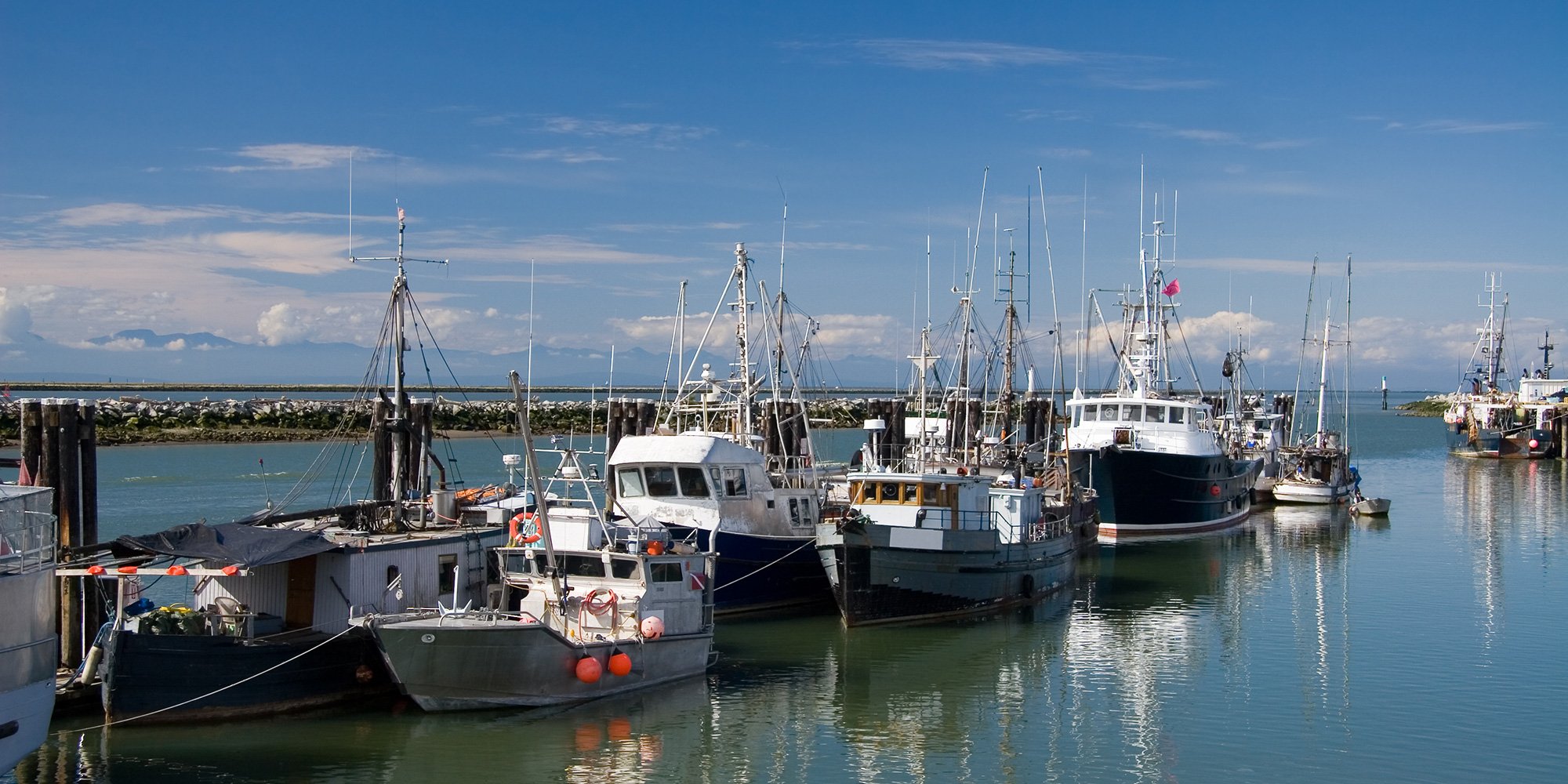The Sparrow Case Affirms Constitutionally Protected Aboriginal Rights
The 1990 Supreme Court Decision in R. v. Sparrow was the first Supreme Court of Canada decision which applied s. 35 of the Constitution Act, 1982...

The doctrine of Aboriginal rights exists… because of one simple fact: when Europeans arrived in North America, Aboriginal peoples were already here, living in communities on the land, and participating in distinctive cultures, as they had done for centuries. It is this fact, and this fact above all others, which separates Aboriginal peoples from all other minority groups in Canadian society and which mandates their special legal status.
Chief Justice Lamer in R. v. Van der Peet, para 30.
Aboriginal rights, title and the duty to consult are mighty topics with a profound history in Canada, rooted in the Royal Proclamation of 1763. Historically, governments have
dismissed Aboriginal rights and title. Until 1951, the Indian Act barred even Indigenous
Peoples from bringing forward Aboriginal claims in court. The removal of this barrier led to a flood of Indigenous claims in the courts.
Government policy on Aboriginal rights and title has evolved through legal challenges,
more so than proactively. It’s in this context that the courts established the doctrine of
the Duty to Consult. Before we delve into its evolution, we need to cover a few key
related concepts.
To fully grasp the Duty to Consult, it's essential to first understand its foundational
concepts. The Duty doesn't stand alone. It is inherently linked to Aboriginal rights and Aboriginal title, which serve as its bedrock.
Aboriginal rights are the inherent, collective rights held by Indigenous Peoples in
Canada. These rights stem from their profound connection to the land and the distinct
cultures, languages, and self-governing societies that existed long before European
arrival.
While specific rights vary among Indigenous groups, they commonly include
entitlements related to:
These rights are recognized by the Crown and specifically protected by Section 35 of
the Constitution Act, 1982. Potential infringement or adverse impact on these rights is a
key factor in determining what triggers the Duty to Consult.
Unlike other Aboriginal rights that relate to specific activities on land, Aboriginal title is a right to the land itself. It is a right to use and control the land, and to decide how it is
used.
The existence of Aboriginal title in modern Canada was recognized by the Supreme
Court (the Court) in the landmark Calder case, in 1973. While the Nisga’a Nation’s
specific claim was not upheld in that instance, the ruling definitively confirmed that
Aboriginal title is a pre-existing legal right.
This was a groundbreaking moment. The Canadian government had previously denied
its very existence. The Calder decision shifted the landscape, paving the way for the
negotiation of comprehensive land claims and modern treaties across Canada, such as
the James Bay and Northern Quebec Agreement and the Nisga’a Treaty.
In 1997, the Court further defined Aboriginal title in the Delgamuukw decision,
emphasizing its communal nature and confirming it as a right to the land itself. As the
most expansive form of Aboriginal right, Aboriginal title is a significant factor in triggering the Duty to Consult.
Put simply, the Honour of the Crown is a principle in Aboriginal law that dictates the
government act “honourably” in its dealings with Indigenous Peoples. The principle
requires that the Crown respect treaties, protect Aboriginal and Treaty rights, and
consult Indigenous communities, and applies when the Crown considers actions that
may impact their rights. The Honour of the Crown underpins the doctrine of the Duty to Consult. It is fundamental when conducting consultations with Indigenous groups.
The Duty to Consult is a constitutional obligation on the Crown to consult Indigenous
Peoples when it contemplates actions that might adversely affect their established or
asserted Aboriginal or Treaty rights. This principle was established by the Supreme
Court in Haida Nation v. British Columbia (2004).
The purpose of Indigenous consultation is to avoid unjustifiable infringements on
Aboriginal or treaty rights. This process may lead to accommodations. The purpose
of those accommodations is to remove, reduce, or compensate for negative impacts
on Aboriginal or Treaty rights.
The scope and depth of consultation varies based on factors like the strength of the
Indigenous group's claim and the potential severity of the adverse impact. While Duty entitles Indigenous groups to a robust process, Canadian courts have consistently said that it does not give them a veto over projects.
Three conditions must be met for the Duty to Consult to be triggered:
The Duty to Consult extends even to lands covered by treaties. The Supreme Court of Canada affirmed in Mikisew Cree First Nation v. Canada (2005) that the Duty applies when Crown conduct might impact treaty rights or treaty lands.
The Duty to Consult can also apply independently of modern treaties or comprehensive land claims. This is true even where those agreements outline specific consultation obligations. While they offer important guidance on how and when to consult signatories, treaties do not eliminate the Crown's consultation obligation.
Crucially, Indigenous groups do not need to prove Aboriginal Title to be entitled to
consultation. It can be extremely difficult to secure a declaration of Aboriginal Title in
court. However, the threshold to trigger the Duty to Consult is much lower: even an
asserted, unproven, or potentially weak claim to Aboriginal title can be enough to
create a consultation obligation.
Once the duty is triggered, the Crown must assess the strength of the claim and of the
impacts of its decision or action on the asserted rights. This process determines the
level and depth of consultation required.
The Supreme Court of Canada ruled in 2018 that the legislation development process
does not in itself trigger the Duty to Consult. However, the Honour of the Crown is still at play, and consulting Indigenous Peoples on legislation that may impact Aboriginal or Treaty rights is usually the wiser thing to do. Even where there is no consultation obligation, Indigenous groups can challenge new legislation for potential infringements on their Section 35 rights.
To trigger the Duty to Consult, there must be a new Crown action or decision. Courts have consistently affirmed that the Duty cannot be used to address historical grievances or past wrongs. Therefore, the cumulative effects of an ongoing situation or past failures (such as a lack of prior consultation) do not, in themselves, trigger the Duty to Consult.
However, once a new Crown action does trigger the Duty, the consultation process must consider all existing and ongoing impacts of a project. This includes future impacts directly attributable to the proposed new action, and how they interact with previous and current effects on Aboriginal or Treaty rights.
The Duty to Consult falls on the Crown, meaning the federal and provincial governments. Canadian courts have consistently affirmed that this responsibility cannot be delegated to third parties.
Courts establish the Duty to Consult rests solely with the Crown. It cannot be delegated
to third parties.
However, the Crown can delegate procedural aspects of consultation. While the precise
scope of these delegated tasks varies, they commonly include sharing project information with Indigenous groups, answering questions, and facilitating discussions on potential accommodations.
This often places companies in a challenging position. As the primary contact for
Indigenous communities, they frequently encounter concerns (e.g., cumulative effects, permitting, Crown revenue sharing) that extend beyond their direct project involvement—concerns only the Crown can address. Yet, the Crown often relies heavily, and sometimes exclusively, on proponents to fulfill its Duty. This disconnect can create significant risks for project proponents, even when they diligently follow all procedures prescribed by the Crown.
The Duty to Consult rests with the Crown (provincial and federal governments).
Municipalities don’t hold this direct constitutional responsibility, but are increasingly
involved in Indigenous consultations, similarly to companies.
This occurs in part because provinces can delegate procedural aspects of consultation to municipalities. For example, provinces might expect municipalities to undertake initial engagement or information sharing with affected Indigenous communities when making land use planning decisions, such as zoning changes or development approvals, which could impact Aboriginal or Treaty rights.
Regardless, the Crown bears ultimate legal responsibility for adequate consultation and accommodation.
This creates a complex dynamic for municipalities. They often are the main government contact for Indigenous communities regarding a project or decision. However, they lack the authority to fully address broader concerns that extend beyond their delegated scope.
The role of Crown corporations and administrative or independent tribunals regarding
the Duty to Consult is nuanced. As creations of the Crown, their actions or decisions
can trigger the Duty to Consult if they might adversely impact Aboriginal or Treaty rights.
The Supreme Court clarified in Rio Tinto Alcan v. Carrier Sekani Tribal Council (2010)
that an independent tribunal's consultation obligations depend on its mandate.
Even if a tribunal lacks these specific powers, the Crown can still delegate procedural
aspects of consultation to it, like with companies and municipalities. In that case, the
Crown must clearly inform Indigenous groups that it relies on the tribunal to fulfill its
consultation obligations.
A key aspect of the duty is that consultation must be meaningful. This means the Crown cannot simply tick boxes. Meaningful consultation requires good-faith effort to understand and address Indigenous concerns.
What constitutes meaningful consultation depends on the specifics of each situation. The level of consultation required is based on two key factors:
For example, a minor change to provincial park regulations might slightly impact traditional harvesting for an Indigenous group without a treaty. This could require only information sharing via correspondence.
By contrast, a new nuclear power plant on lands with a declaration of Aboriginal Title demands significant engagement. It requires deep dialogue and robust accommodation measures to reduce or compensate for impacts on Aboriginal Rights.
Free, Prior and Informed Consent (FPIC) is a process referred to in the United Nations
Declaration on the Rights of Indigenous Peoples. It dictates that Indigenous Peoples
have the right to give or withhold their consent on decisions affecting their lands,
territories, and resources. FPIC has three key elements:
The concept of Free, Prior and Informed Consent (FPIC), a core principle of the UN Declaration on the Rights of Indigenous Peoples (UNDRIP), is increasingly influencing the Duty to Consult in Canada. With both federal and provincial governments committed to implementing the Declaration, the relationship between FPIC and the Duty to Consult is continually evolving.
In the federal court ruling Kebaowek First Nation v. Canadian Nuclear Laboratories
(2025), the federal court said that FPIC should inform how we assess the adequacy of
Indigenous consultation, given the commitment from Canada to align laws with the
United Nations Declaration on the Rights of Indigenous Peoples. The court explained
that while FPIC does not grant Indigenous groups a veto over projects, it entitles them
to a more comprehensive consultation process aimed at reaching a mutual agreement.
At the highest end of the Duty to Consult spectrum (proven rights and significant
impacts) consent is increasingly becoming the expected outcome. Adopting FPIC
principles is therefore becoming a best practice for fostering genuine relationships and
ensuring more sustainable outcomes.
You've explored the foundations of the Duty to Consult. To truly make an impact and
refine your approach, consider our Indigenous Consultation and Engagement
Training. In this one-day course with a mix of theory and hands-on scenarios, you’ll
learn about:
Featured photo: Shutterstock

The 1990 Supreme Court Decision in R. v. Sparrow was the first Supreme Court of Canada decision which applied s. 35 of the Constitution Act, 1982...

In 1982, the Government of Canada patriated the Canadian Constitution, and in so doing, formally entrenched Aboriginal and treaty rights in the...

When first starting work on a project that may intersect with one or more Indigenous communities there is a mountain of background information that...